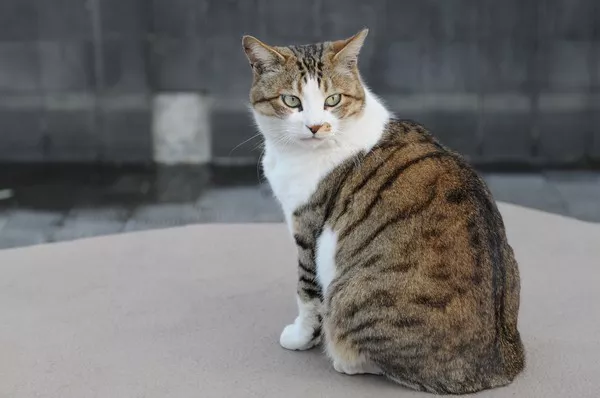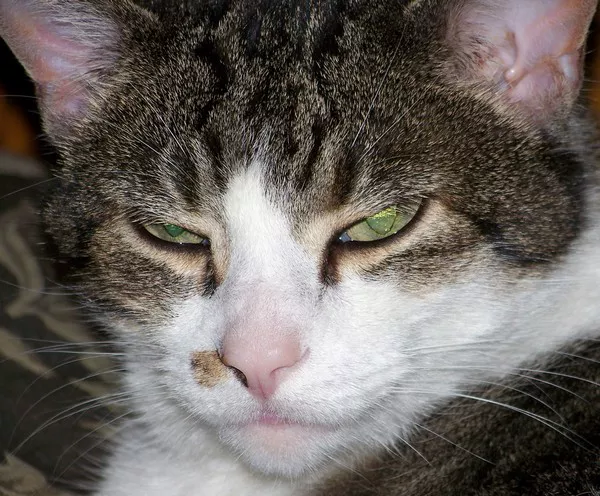Vitamins play a crucial role in maintaining the health and well-being of our feline companions. Among these essential nutrients, the B vitamins are particularly important for cats, supporting various bodily functions, including metabolism, energy production, and nervous system function. In this article, we’ll explore the importance of vitamin B for cats, appropriate dosage guidelines, and potential side effects associated with supplementation.
The Importance of Vitamin B for Cats:
Vitamin B is a group of water-soluble vitamins that includes eight different compounds, each with its own unique functions and benefits. These vitamins play a vital role in maintaining overall health and supporting essential bodily processes in cats.
B1 (Thiamine): Thiamine is necessary for carbohydrate metabolism and the proper functioning of the nervous system. A deficiency in thiamine can lead to neurological problems, including muscle weakness, tremors, and seizures.
B2 (Riboflavin): Riboflavin is involved in energy production, cell growth, and the metabolism of fats, carbohydrates, and proteins. Cats deficient in riboflavin may experience poor growth, skin and coat abnormalities, and eye disorders.
B3 (Niacin): Niacin is essential for energy metabolism and the synthesis of fatty acids and hormones. A deficiency in niacin can lead to symptoms such as poor appetite, weight loss, and dermatitis.
B5 (Pantothenic Acid): Pantothenic acid is involved in the synthesis of coenzyme A, which plays a role in energy metabolism and fatty acid synthesis. Cats deficient in pantothenic acid may exhibit symptoms such as poor growth, poor coat quality, and neurological abnormalities.
B6 (Pyridoxine): Pyridoxine is involved in amino acid metabolism, neurotransmitter synthesis, and the regulation of homocysteine levels. A deficiency in pyridoxine can lead to neurological symptoms, including seizures and neuropathy.
B7 (Biotin): Biotin is essential for the metabolism of carbohydrates, fats, and proteins, as well as the maintenance of healthy skin and coat. Cats deficient in biotin may develop dermatitis, poor coat quality, and brittle nails.
B9 (Folate): Folate is involved in DNA synthesis and cell division, making it essential for growth and development. A deficiency in folate can lead to poor growth, anemia, and birth defects in kittens.
B12 (Cobalamin): Cobalamin is essential for DNA synthesis, red blood cell formation, and nerve function. Cats deficient in cobalamin may develop anemia, neurological symptoms, and gastrointestinal disturbances.
Ensuring an adequate intake of B vitamins is essential for maintaining optimal health and preventing deficiency-related disorders in cats.
Dosage Guidelines for Vitamin B Supplementation:
While cats typically obtain sufficient B vitamins from a balanced diet, certain factors may increase their requirements or hinder absorption. In such cases, supplementation may be necessary to ensure adequate intake. However, it’s essential to consult with a veterinarian before initiating any supplementation regimen, as excessive intake of certain B vitamins can have adverse effects.
Commercial Cat Foods: Most commercial cat foods are formulated to meet the nutritional needs of cats, including their requirements for B vitamins. However, factors such as food processing, storage conditions, and individual cat characteristics can affect nutrient availability. Choosing high-quality cat food from reputable brands can help ensure your cat receives adequate B vitamin intake.
Special Dietary Needs: Cats with specific dietary needs or medical conditions may require additional B vitamin supplementation. For example, cats with gastrointestinal disorders that affect nutrient absorption may benefit from B vitamin injections or oral supplements. Similarly, senior cats, pregnant or nursing cats, and kittens may have increased B vitamin requirements.
Supplementation Form: B vitamins are available in various forms, including tablets, capsules, liquids, and injectables. The appropriate form of supplementation will depend on factors such as the cat’s individual needs, ease of administration, and veterinary recommendations. Injectable forms of B vitamins may be preferred for cats with gastrointestinal disorders or those unable to tolerate oral supplements.
Dosage Recommendations: Dosage recommendations for B vitamin supplementation in cats vary depending on the specific vitamin and the cat’s individual needs. It’s essential to follow veterinary guidance regarding dosage and frequency of administration to avoid overdosage or adverse effects. In general, B vitamin supplements should be administered according to the manufacturer’s instructions or veterinary recommendations.
Monitoring and Adjustment: Regular monitoring of the cat’s health and response to supplementation is essential to ensure optimal outcomes. Veterinarians may recommend periodic blood tests to assess B vitamin levels and adjust supplementation as needed based on the cat’s condition and response.
Potential Side Effects of Vitamin B Supplementation:
While B vitamin supplementation is generally safe when administered correctly, excessive intake can lead to adverse effects in cats. It’s essential to follow veterinary guidance regarding dosage and administration to minimize the risk of side effects.
Hypervitaminosis: Excessive intake of certain B vitamins, particularly fat-soluble vitamins such as B6 and B12, can lead to hypervitaminosis and toxicity. Symptoms of hypervitaminosis may include gastrointestinal disturbances, neurological symptoms, and liver damage. Cats with pre-existing medical conditions or impaired renal function may be more susceptible to vitamin toxicity and should be monitored closely during supplementation.
Interactions with Medications: Some medications may interact with B vitamin supplements, affecting their absorption, metabolism, or efficacy. Cats receiving long-term medication regimens should be monitored for potential interactions with B vitamins and other nutrients. Veterinarians can provide guidance on appropriate supplementation strategies for cats taking medications.
Allergic Reactions: In rare cases, cats may experience allergic reactions or sensitivity to certain B vitamin supplements or their ingredients. Signs of allergic reactions may include skin rash, itching, swelling, or difficulty breathing. If your cat exhibits any signs of an allergic reaction after receiving a B vitamin supplement, discontinue use immediately and consult your veterinarian.
Digestive Upset: Some cats may experience mild digestive upset, such as nausea, vomiting, or diarrhea, when first starting B vitamin supplementation. These symptoms are typically temporary and may resolve with continued use or adjustment of the dosage. If digestive upset persists or worsens, consult your veterinarian for further evaluation and guidance.
Conclusion:
Vitamin B plays a crucial role in maintaining the health and well-being of cats, supporting various bodily functions, including metabolism, energy production, and nervous system function. While most cats obtain sufficient B vitamins from a balanced diet, certain factors may increase their requirements or hinder absorption, necessitating supplementation. However, it’s essential to consult with a veterinarian before initiating any supplementation regimen to ensure appropriate dosage and administration. By understanding the importance of vitamin B for cats and following proper supplementation guidelines, cat owners can help support their feline companions’ overall health and longevity.

























